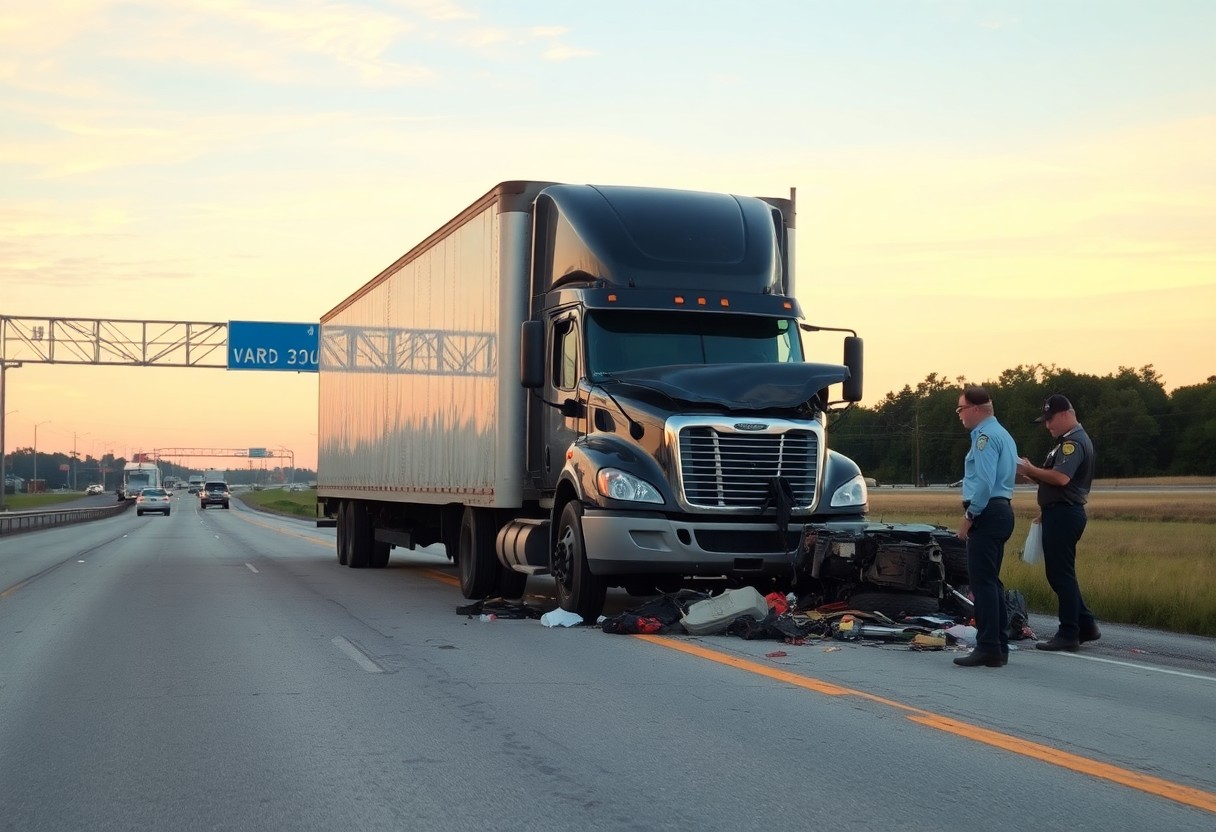Over time, navigating the aftermath of a car accident can be overwhelming and stressful. This guide will equip you with the necessary steps to take, ensuring that you preserve your rights and secure the compensation you deserve. From gathering important evidence to understanding your legal options, this step-by-step approach aims to empower you throughout the process. Trust that with the right knowledge from Tampa attorneys, you can effectively transition from collision to court and achieve a positive outcome.
Types of Auto Accident Claims
Your knowledge of the various types of auto accident claims can guide you through the complex process that follows a collision. These claims often fall into one of the following categories:
| Claim Type | Description |
| Personal Injury Claims | Compensation for injuries suffered by individuals. |
| Property Damage Claims | Reimbursement for damages to your vehicle. |
| Wrongful Death Claims | A claim arising from a fatal accident. |
| PIP Claims | Personal Injury Protection, covering medical expenses. |
| Uninsured Motorist Claims | Claims against an uninsured driver. |
Assume that you have sustained injuries in an auto accident; you will likely consider filing a personal injury claim.
Personal Injury Claims
For those injured in auto accidents, personal injury claims serve as a pathway to obtaining compensation for your medical bills, lost wages, and pain and suffering. You can hold the responsible party accountable and seek the financial relief needed for recovery.
Property Damage Claims
Little do many know, property damage claims are imperative for getting your vehicle repairs covered. These claims help you recover expenses incurred from damages to your car, including repairs and replacements.
Property damage claims focus on restoring your vehicle to its pre-accident condition. If your vehicle was deemed a total loss, you could seek reimbursement for its fair market value. A comprehensive assessment, including repair estimates and valuation, plays a vital role in getting your rightful compensation.
Wrongful Death Claims
On occasions when an auto accident results in a fatality, wrongful death claims can be pursued by the deceased’s family. These claims aim to secure compensation for the financial losses and emotional suffering endured due to the tragic event.
A wrongful death claim allows you to seek damages not only for lost income but also for emotional suffering and funeral expenses. If you are dealing with the aftermath of such a loss, it’s imperative to consult with a knowledgeable attorney who can guide you through the legal process while providing compassionate support.
Immediate Steps After an Accident
Some steps you take immediately after an accident can significantly affect your safety and legal outcome. Your first priority should be to ensure personal safety and seek medical attention for anyone injured. Even if injuries seem minor, it’s important to get a professional assessment, as conditions can worsen.
Ensuring Safety and Medical Attention
On securing the scene, check for injuries and call 911 if necessary. Ensure that all individuals involved are in a safe location away from traffic, which may further compound risks. Prioritize your health and that of others.
Documenting the Accident Scene
To build a strong case, it’s vital to document the accident scene. Start by taking photos of vehicle positions, damages, and road conditions. Collect details such as the time, weather, and traffic signals to create a clear record.
Plus, capturing a wide range of evidence will support your claim. Include shots of any injuries, skid marks, and surrounding environments. Having clear time-stamped documentation can be invaluable as it helps establish the circumstances of the incident and can be critical in disputes.
Exchanging Information Properly
Properly exchanging information with other parties involved in the accident is vital. Share your contact details, insurance information, and vehicle registration. It’s also wise to get the same from other individuals involved.
Exchanging information without conflict can significantly affect your case. Be polite and avoid discussions about fault at the scene. Instead, gather the necessary details, such as names, phone numbers, and insurance policy numbers, ensuring you have everything to assist with insurance claims and potential legal actions.
Working with Insurance Companies
To navigate your journey from collision to court, working with insurance companies effectively is vital. Your interactions with these agencies will significantly impact your ability to secure fair compensation for your injuries and damages. With the right approach, you can ensure that your claims process runs smoothly.
Reporting the Accident
For a successful claim, you must report the accident promptly and accurately to your insurance company. Provide all necessary details including the date, time, location, and the other party’s information to ensure a thorough investigation.
Understanding Insurance Adjusters’ Tactics
On the other hand, you should be aware that insurance adjusters often have their own interests at heart. Understanding their tactics can empower you to navigate conversations without being misled or pressured.
Adjusters may use various tactics to minimize your claim, such as asking leading questions or pushing for quick settlements. They may also downplay your injuries or claim responsibilities that are not accurate. It’s important to stay vigilant and ensure your rights are protected as you engage with them. Keep all communication clear and document everything to avoid misunderstandings.
Tips for Effective Communication
There’s a lot you can do to ensure effective communication with insurance companies. Here are some tips:
- Be clear and concise
- Document all communications for your records
- Stay calm and composed during discussions
- Know your policy and its coverage
Thou should always convey your needs firmly and transparently.
Effective communication is key to a smooth claims process. By being proactive, you can ensure your concerns are addressed. Always keep the lines of communication open and make sure to follow up if necessary. Here are more helpful tips:
- Ask questions if you need clarification
- Be patient but persistent
- Use professional language to maintain respect
- Stay focused on the facts of your case
Thou will find that consistency in your approach leads to better outcomes in your claim process.
Building Your Legal Case
For anyone involved in a collision, building a strong legal case is necessary to securing the compensation you deserve. By understanding the steps involved, you can effectively navigate the process with the guidance of experienced Tampa attorneys. This chapter will outline key actions necessary to strengthen your case as you transition from collision to court.
Gathering and Preserving Evidence
Some of the most critical elements in your case begin with gathering evidence from the scene of the accident. This includes photographs, witness statements, and police reports, all of which should be carefully preserved for later use.
Establishing Liability
To hold the responsible party accountable, you must establish liability by demonstrating that their actions directly led to the accident and your injuries.
Evidence such as traffic camera footage, accident reconstruction analysis, and witness testimonies will be necessary in proving that the other party was at fault. You should also consider any legal statutes that may apply to the case, as they can reinforce your claim regarding the negligent behavior that caused the collision. Establishing a clear link between the defendant’s actions and your damages is fundamental in securing a favorable outcome.
Calculating Damages Accurately
To ensure you recover fully, it’s vital to calculate your damages accurately, taking into account both current and future expenses related to your injuries.
The total amount you can seek may include medical bills, lost wages, and compensation for pain and suffering. An attorney can assist you in compiling meticulous documentation that reflects medical expenses, rehabilitation costs, and any long-term care needs. Having precise figures ready helps to support your claims and strengthens your position in negotiations or court proceedings, maximizing the amount you receive for your damages.
Factors That Influence Your Compensation
Keep in mind that several factors can significantly impact the compensation you receive after an accident. These include:
- Severity of injuries
- Impact on earning capacity
- Comparative negligence in Florida
Thou must consider each of these aspects carefully as they can affect your final outcome.
Severity of Injuries
Little do many realize, the severity of injuries plays a pivotal role in determining compensation. The more serious the injuries, the higher the medical costs and the more significant the pain and suffering, leading to increased potential compensation.
Impact on Earning Capacity
Clearly, your earning capacity is integral to the compensation you may receive. If your injuries affect your ability to work, your potential earnings will factor into the compensation calculation.
With serious injuries, losing your job or being unable to perform at the same level can lead to long-term financial impacts. This loss is not only immediate; it may affect future opportunities and salary growth. Understanding how injuries influence your earning capacity is imperative in seeking the compensation you deserve.
Comparative Negligence in Florida
You should understand that comparative negligence laws in Florida can significantly impact your compensation amount. This concept evaluates how fault is assigned in an accident, which can adjust the compensation based on your level of responsibility.
Compensation may be reduced if you are found partially responsible for the accident. In Florida, if you are more than 50% at fault, you may not be eligible for any compensation. Thus, knowing your position regarding fault can significantly influence the outcome of your case.
Comparative Negligence Breakdown
| Fault Percentage | Compensation Reduction |
|---|---|
| 0% Fault | 100% Compensation |
| 50% Fault | 50% Compensation |
| More than 50% Fault | 0% Compensation |
Settlement vs. Trial: Pros and Cons
After a collision, deciding between settlement and trial can be overwhelming. Each option comes with its own set of advantages and drawbacks. Understanding these can help inform your decision-making process. Below is a breakdown of the pros and cons of each path:
| Pros | Cons |
|---|---|
| Quicker resolution | Possibly less compensation |
| Less stressful | Limited to negotiations |
| Confidentiality | No guaranteed settlement |
| Control over outcome | Potential for counteroffers |
| Saves on legal fees | May not address all damages |
Benefits of Settlement Negotiations
Even if you are unsure about your chances in court, settlement negotiations can provide valuable benefits. You may find that reaching an agreement allows you to recuperate faster without the prolonged stress of a court appearance. A favorable settlement can help you get compensated efficiently, enabling you to focus on your recovery during this challenging time.
When Litigation Becomes Necessary
Some situations demand litigation, especially if the other party refuses to negotiate fairly or if your damages are extensive. If you feel that the offered settlement does not adequately cover your losses or if there are disputes about liability, legal action may be your best option to obtain a just resolution.
Settlement negotiations might not always suffice, leading you to pursue litigation to ensure your best interests are represented. When the other party’s offer is significantly lower than what you deserve, or if they deny responsibility for the accident, you may require a court’s intervention. Litigation can help protect your legal rights and maximize your compensation, particularly in complex cases involving substantial damages or significant liability questions.
Timeline Expectations for Both Paths
Benefits of each option affect the timeline you can expect during the process. Settlement negotiations typically move swiftly, often concluding within weeks or a few months. In contrast, litigation can extend over a year or longer, requiring patience as you navigate the complexities of the legal system.
Pros of understanding these timelines include better preparation for what lies ahead. If you opt for a settlement, you may manage to resolve matters efficiently, giving you faster access to compensation. However, should litigation become necessary, it’s necessary to brace yourself for a longer journey involving court dates, discovery processes, and potential appeals. Being informed helps you make strategic decisions aligned with your priorities.
Conclusion
Drawing together the insights from “From Collision to Court – A Step-by-Step Guide by Tampa Attorneys,” you now understand the importance of each phase in navigating the aftermath of an accident. It’s important that you remain organized, informed, and proactive throughout the entire process. Utilizing the guidance of qualified attorneys can greatly enhance your ability to seek justice and compensation for your situation. As you proceed, staying aware of your rights and options will empower you to make the best decisions for your recovery and future.

















